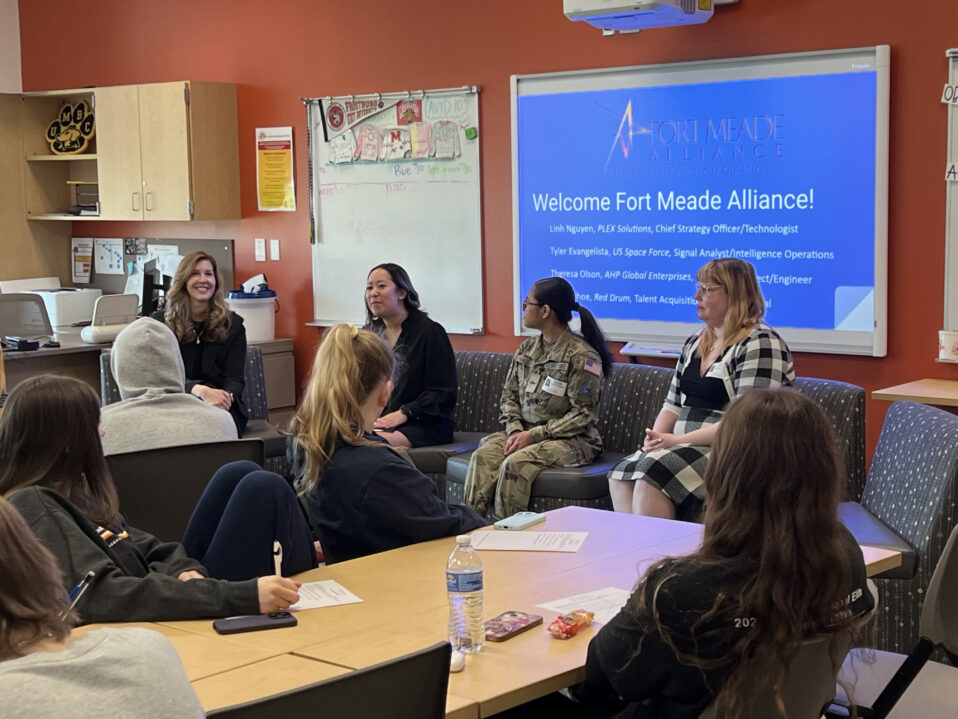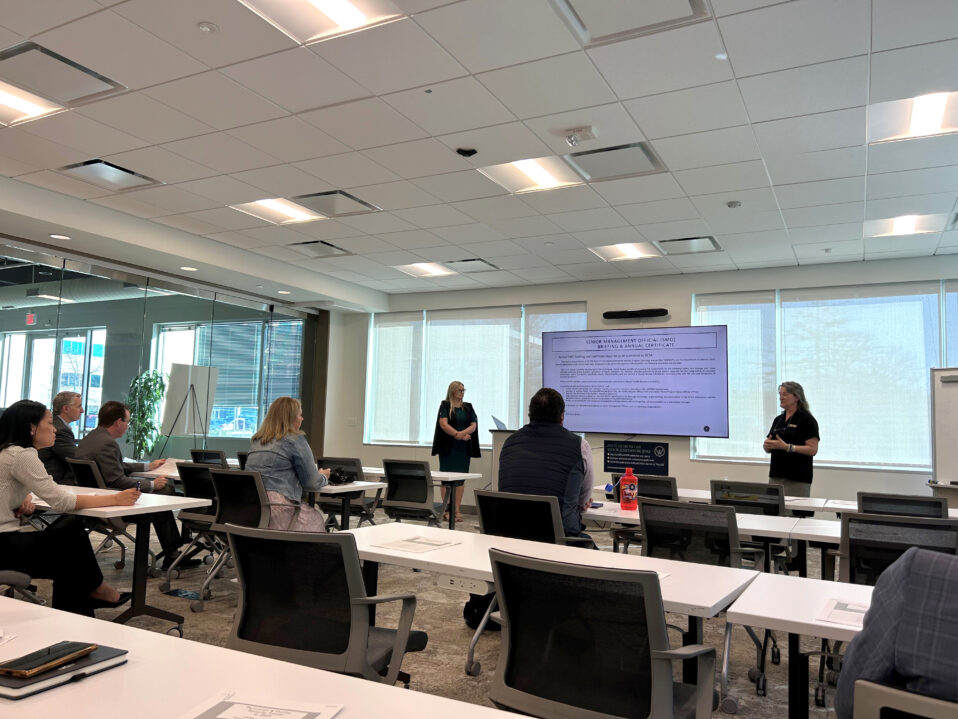 With an annual budget exceeding $10 billion, more than 8,000 military and civilian personnel, operations spanning 42 countries, steadily growing responsibilities across defense and other federal agencies, and an essential role in America’s cyber security, the Defense Information Systems Agency (DISA) is actively seeking industry partners and innovative solutions.
With an annual budget exceeding $10 billion, more than 8,000 military and civilian personnel, operations spanning 42 countries, steadily growing responsibilities across defense and other federal agencies, and an essential role in America’s cyber security, the Defense Information Systems Agency (DISA) is actively seeking industry partners and innovative solutions.
That was a core message delivered by Vice Admiral Nancy Norton – Director of DISA and Commander of the Joint Force Headquarters Department of Defense Information Network (JFHQ-DODIN) – to attendees at the Fort Meade Alliance Key Leaders Series in October.
On top of its mission to deliver command and control information sharing capabilities and globally accessible enterprise information infrastructure for warfighters, national leaders and coalition partners, DISA has been taking on additional responsibilities and launching new initiatives.
DISA was recently designated the single service provider to 14 defense agencies and field activities for the Fourth Estate Optimization Effort – a project that will bring those organizations onto the newly optimized DoDNet and add 1,200 people to DISA’s workforce. Last year, DISA assumed responsibility for all support functions to the DoD’s Joint Artificial Intelligence Center. It is responsible for the migration of DoD computing efforts out of traditional data centers and onto Mil Cloud 2.0. It is also leading ongoing efforts to replace legacy systems with more efficient, effective technologies and heighten DoD’s information sharing capacities with international partners.
“All of the things we do are in support of the national defense strategy to increase our readiness and lethality of the joint forces, to build partnerships and inform the department for efficiency and effectiveness,” Norton said.
Core to all of those defenses is cyber.
“We are constantly fighting the battle of cyber security and cyber defense and what that means in terms of warfighting in the cyber domain,” Norton said. “A big part of what I am concerned about is how ready are our forces to fight in cyberspace but also to fight a kinetic battle in any domain…and maintain their capability in cyberspace to complete their mission.”
Cyber security, Norton added, is DISA’s greatest challenge.
“We are at war every day in cyber… The capabilities of the attackers continue to grow and we get new systems with new vulnerabilities,” she said. “The cyber domain is where I am convinced the next war will start and possibly end.”
To address all of those responsibilities and challenges, DISA has developed numerous ways to harness the skills, innovation and potential of the private sector.
DISA’s newly formed Emerging Technologies and Innovation Directorate “is a good entry point for industry to come in when they have a new idea and want to propose something innovative,” Norton said, adding the directorate has already launched pilots to test new capabilities and systems.
Personnel in DISA’s “very active industry engagement office” are always available to address contractors’ questions and ideas.
The agency’s request for information process is designed to solicit input from industry partners so that DISA can “refine our requirements in a way that makes sense,” she said.
Meanwhile, the DISA Small Business Office “has been incredibly successful – one of the few agencies across government, not just the Department of Defense, that has met or exceeded every small business goal that government has given us for seven years in a row,” Norton said. “I believe very strongly in the diversity that comes from small businesses, the different kinds of thoughts we get particularly in our world of information technology from small businesses who have unique, niche products and unique ideas on how to solve problems.”
Norton offered some advice and one request to contractors looking to support DISA’s work.
“I need you to build cyber security into every solution you provide. Don’t wait until the end to say now we’ll figure out how to secure this. I see far too often in our commercial products that there is a rush to market to get an operational capability out there and then they figure out what the cyber vulnerabilities are and…how to deal with them long after it has become a real problem for users. Sometimes, that is a national or international problem. So I implore you to think about that and build in that cyber security capability from the beginning…because otherwise you become my problem.”
Finally, Norton urged listeners that “anything you can do to help build the pool of recruitable candidates for our workforce is incredibly helpful. The hardest job I have is recruiting and retaining the right talent.”
Consequently, any efforts by industry to support and expand STEM education in schools (especially underserved schools), to teach young people about how to guide their behavior to eventually qualify for a security clearance and to help young people pursue careers in cyber security and information technology would help DISA execute its national security mission, Norton said.



